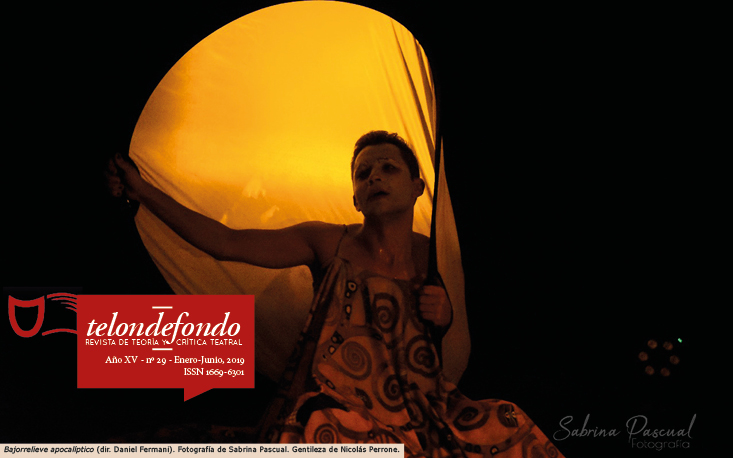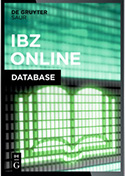El Katak de Rafael Spregelburd y el triunfo del habla sin lengua
Resumen
El trabajo analiza La Terquedad de Rafael Spregelburd a partir de la interpretación de la noción de terquedad como ese sin sentido de Planc de buscar obstinadamente un sentido a través de la invención de una lengua artificial, numérica y universal que anule las diferencias, basada en el anhelo del protagonista de devolverle a los hombres la facultad primitiva que Dios le dio al hombre de un habla sin lengua. Nuestra investigación se basa en un análisis de la organización temporal de los hechos en la trama, la cual se inicia y termina con el hombre primitivo, con la negación de la lengua, también de la artificial inventada por Planc, ese alfabeto numérico propuesto como solución a la multiplicación caprichosa que cada idioma hace de sus palabras. Entendemos que la obra descansa sobre una estructuración circular de la fábula que reproduce la terquedad del protagonista y contribuye a resaltar una noción de lenguaje sin relación con el mundo, un lenguaje vuelto sobre sí mismo.Descargas
Los autores/as que publiquen en esta revista aceptan las siguientes condiciones:
-
Los autores/as conservan los derechos de autor y ceden a la revista el derecho de la primera publicación, con el trabajo registrado con Licencia Creative Commons Atribución-NoComercial-CompartirIgual 4.0 Internacional, que permite a terceros utilizar lo publicado siempre que mencionen la autoría del trabajo y a la primera publicación en esta revista.
-
Los autores/as pueden realizar otros acuerdos contractuales independientes y adicionales para la distribución no exclusiva de la versión del artículo publicado en esta revista (p. ej., incluirlo en un repositorio institucional o publicarlo en un libro) siempre que indiquen claramente que el trabajo se publicó por primera vez en esta revista.
-
Se permite y recomienda a los autores/as a publicar su trabajo en Internet (por ejemplo en páginas institucionales o personales).











